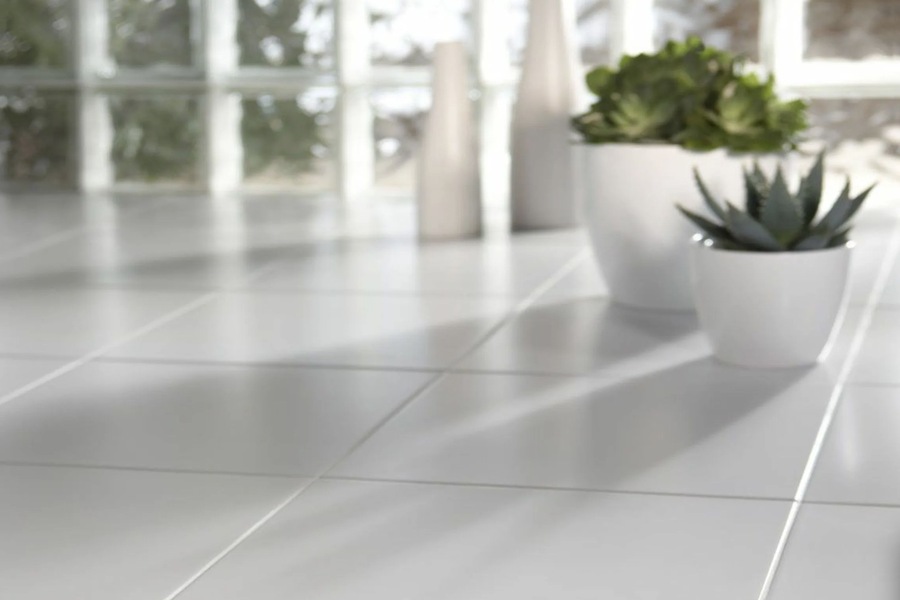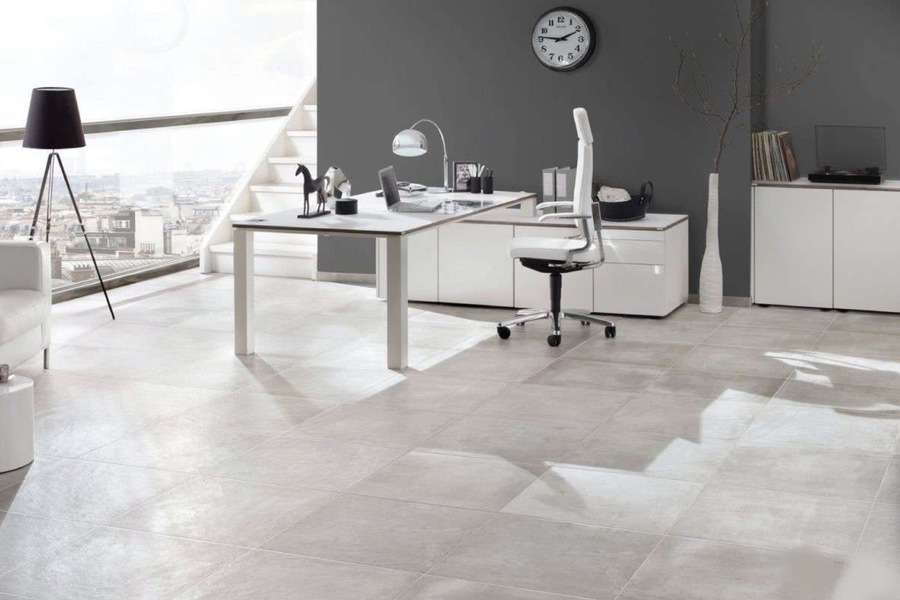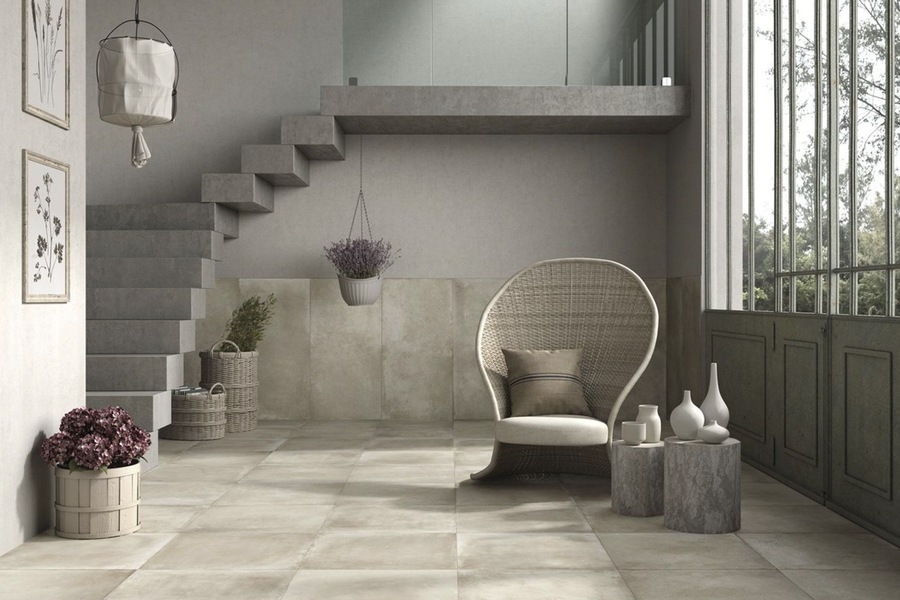Porcelain tile is a high-performance, visually versatile type of ceramic tile, celebrated for its exceptional durability, resistance to wear, and aesthetic adaptability. Made from fine, dense clay and fired at extremely high temperatures, porcelain tiles stand out as a superior choice for flooring, wall coverings, and decorative applications in both residential and commercial spaces. Retailers like RAK Ceramics Online offer a wide variety of porcelain tiles, making it easier than ever to find styles that meet your specific design and functional needs. This guide delves deeply into the benefits, types, applications, and technical details of porcelain tiles, along with tips for installation and maintenance, offering a complete understanding of why this material is so widely favored.
Key Benefits of Porcelain Tile
Porcelain tiles offer a host of benefits, making them a standout choice for a variety of spaces. Below are the expanded details on their advantages:
1. Superior Wear Resistance
Porcelain tiles are engineered to endure heavy foot traffic and everyday wear and tear. Their dense structure resists scratches, stains, and fading, making them suitable for high-traffic areas such as hallways, public buildings, and busy kitchens. Unlike many other materials, porcelain tiles maintain their beauty over years of use.
2. Minimal Maintenance
Cleaning and maintaining porcelain tiles is remarkably simple. Their non-porous surface prevents the absorption of dirt, grime, or spills. A routine cleaning regimen of sweeping and wiping with water or a mild detergent keeps them looking new. For commercial spaces, this low-maintenance property translates to long-term savings.
3. Affordable Luxury Look
Porcelain tiles are an economical alternative to natural stone or wood while replicating their appearance convincingly. With advanced manufacturing technologies, porcelain can mimic the textures and grains of materials like marble, granite, slate, limestone, and even wood, providing a luxurious finish at a fraction of the cost.
4. Unmatched Durability
Fired at higher temperatures than standard ceramic tiles and made from finer clay, porcelain is exceptionally dense and robust. It withstands impact, heavy loads, and harsh environments better than other tile options, making it ideal for industrial and outdoor settings.
5. High Moisture Resistance
One of the defining features of porcelain tiles is their low porosity, making them highly resistant to water absorption. This quality is especially beneficial in wet areas like bathrooms, saunas, kitchens, and swimming pools. In cold climates, their moisture resistance also prevents cracking caused by freeze-thaw cycles.
6. Ease of Cleaning
Porcelain tiles repel stains and dirt, meaning most spills can be wiped away effortlessly. Their resistance to chemicals and moisture makes them perfect for use in places requiring strict hygiene, such as medical facilities, kitchens, and bathrooms.
7. Hygienic and Eco-Friendly
The non-porous surface of porcelain discourages bacterial growth and mold formation. Additionally, porcelain tiles are made from natural materials and can often be recycled, contributing to an eco-friendly building environment.

Types of Porcelain Tiles
Porcelain tiles come in a variety of finishes and styles, each suited to specific applications. Understanding these types can help you choose the right option for your needs:
1. Regular Porcelain Tiles
These tiles are made for areas with heavy use and where anti-slip properties are essential. Their matte or textured finishes provide excellent grip, making them ideal for flooring in high-traffic spaces or outdoor patios where safety is a concern.
2. Glazed Porcelain Tiles
Glazed porcelain tiles feature a protective layer of decorative glaze, which can be matte or glossy. This coating enhances their durability and makes them resistant to scratches and stains while offering a wide variety of colors, patterns, and designs.
3. Polished Porcelain Tiles
Polished porcelain tiles are regular tiles that undergo a polishing process to achieve a sleek, glossy surface. These tiles are commonly used in modern, sophisticated interiors and are ideal for creating a spacious, luxurious aesthetic.
4. Full-Body Porcelain Tiles
In full-body porcelain, the color and texture run through the entire thickness of the tile. This makes any visible chips less noticeable and provides superior durability for commercial or industrial applications.
5. Large Format Porcelain Slabs
Advancements in tile manufacturing have introduced large-format porcelain slabs that are perfect for seamless installations. These slabs are ideal for countertops, shower walls, and expansive floors, offering a clean, modern look.
Applications of Porcelain Tiles
Porcelain tiles are incredibly versatile and suitable for a wide array of applications. Here are some common and creative uses:
Residential Applications
Bathrooms: Porcelain tiles are a top choice for bathroom floors and walls due to their moisture resistance. They also add elegance to vanity areas and shower enclosures.
Kitchens: Perfect for countertops, backsplashes, and floors, porcelain tiles can withstand heat and spills without losing their charm.
Living Areas: Wood-look porcelain tiles bring warmth and texture to living rooms and bedrooms while offering superior durability.
Entryways: High-traffic areas like hallways benefit from the durability and wear resistance of porcelain tiles.
Commercial and Industrial Applications
Public Buildings: High-traffic areas such as airports, malls, and offices use porcelain for its durability and easy maintenance.
Healthcare Facilities: The hygienic properties of porcelain make it ideal for hospitals, clinics, and laboratories.
Retail Spaces: Glazed and polished porcelain tiles add style and functionality to showrooms and stores.
Outdoor Uses
Frost-resistant porcelain tiles are perfect for patios, terraces, outdoor kitchens, and poolside areas. Their durability ensures they withstand harsh weather conditions.
Specialized Applications
Swimming Pools and Fountains: Porcelain tiles are non-porous, making them a safe and durable choice for underwater use.
Saunas: Resistant to both heat and moisture, porcelain tiles are ideal for sauna walls, ceilings, and floors.

Installation and Maintenance
Installation Considerations
Weight: Porcelain tiles are heavier than standard ceramic tiles, so ensure that the substrate is properly prepared to handle the load.
Cutting and Drilling: Due to their density, porcelain tiles require specialized tools such as diamond-blade saws for cutting and installation.
Professional Help: Hiring skilled professionals is recommended for complex installations, especially for large-format tiles.
Maintenance Tips
Regularly sweep or vacuum to remove dirt and debris that could scratch the surface.
Wipe spills immediately to prevent any potential staining.
Use a mild detergent or tile cleaner for routine cleaning.
Avoid harsh chemicals or abrasive scrubbers that could damage the glaze.
Pricing and Availability
Porcelain tiles come in a wide price range to suit different budgets. High-quality options, such as the ELLE MARBLE porcelain matte tiles available through RAK Ceramics Online in Dubai, cost approximately AED 307.91 for a box covering 1.50 m². These tiles offer a sophisticated design that complements modern and traditional interiors alike.
Conclusion
Porcelain tiles combine functionality, beauty, and value, making them one of the most versatile and durable surface materials available. Whether you’re renovating your home, designing a commercial space, or working on an outdoor project, porcelain tiles provide a long-lasting, low-maintenance solution. With a wide array of designs, finishes, and sizes, they can adapt to virtually any aesthetic while maintaining their outstanding performance.
